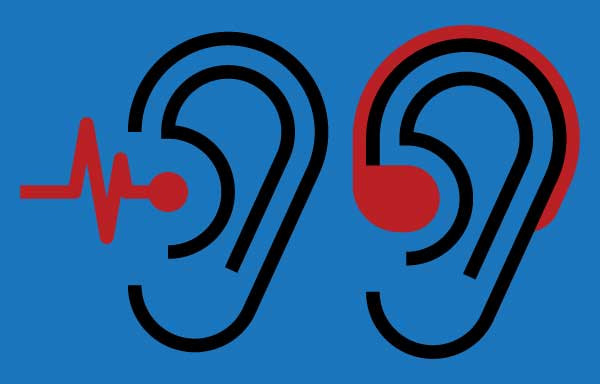
Are poinsettias, mistletoe, or holly plants dangerous?

Last winter, my wife shooed the dog and visiting toddlers away from our poinsettia plants, saying “they’re poisonous, you know.”
I did not know. But it turns out that the belief that poinsettias are deadly is widespread. The same could be said for mistletoe and holly. But are their reputations for danger well-deserved? Since these plants are especially popular to brighten up homes or give as gifts during the holidays, I decided to look into it.
The risks of poinsettia
Could a plant so common and so well-liked in the winter holidays also be so dangerous? If it is dangerous, what problems does it cause? Must it be eaten to cause problems, or is it harmful to just be nearby? And if it’s not dangerous, why does the myth live on?
The answers to these questions are not easy to find. In fact, the bad reputation may have started in 1919, when an army officer’s child reportedly died after eating part of a poinsettia plant. It is unclear if the plant was responsible, though: many other reports describe mild symptoms, such as nausea or vomiting, but no deaths.
Decades ago, a study in the American Journal of Emergency Medicineanalyzed nearly 23,000 cases of people eating poinsettia and found
- no fatalities
- nearly all cases (96%) required no treatment outside the home
- most cases (92%) developed no symptoms at all.
According to one estimate, a 50-pound child would have to eat more than 500 poinsettia leaves to approach a dose that could cause trouble. Similarly, pets may develop gastrointestinal symptoms after eating poinsettia, but these plants pose no major threat to animals.
The risks of mistletoe
The story is much the same for mistletoe. It’s not particularly dangerous, but may cause an upset stomach if eaten. In fact, mistletoe has been used for centuries as a remedy for arthritis, high blood pressure, infertility, and headache. The evidence isn’t high-quality for any of these uses, though.
Interest also centers on this plant’s potential as an anticancer treatment. Some extracts of mistletoe contain chemicals shown to kill cancer cells in the laboratory and to stimulate human immune cells. For example, a substance called alkaloids has similar properties as certain chemotherapy drugs used in the past to fight leukemia and other forms of cancer. However, a two-part 2019 review found that adding mistletoe extracts to conventional cancer treatments did not improve survival or quality of life.
No one suggests it’s a good idea to eat this plant, accidentally or otherwise. But eating one to three berries or one or two leaves is unlikely to cause serious illness, according to the authors of a 1986 review of multiple studies. And no significant symptoms or deaths were described in one report of more than 300 cases of eating mistletoe. However, some sources warn that serious problems or even death may occur if enough is ingested. The specific dose required to cause death is unknown but, fortunately, it appears to be so high that consuming enough to be lethal is extremely rare.
The risks of holly
This plant can be dangerous to people and pets. The berries of holly plants are poisonous. If eaten, they may cause crampy abdominal pain, drowsiness, vomiting, and diarrhea. While no one would recommend eating holly, it is unlikely to cause death. And for at least one type of holly, knowing the Latin name would be enough to discourage ingestion: the yaupon holly is also called Ilex vomitoria.
The bottom line
No one should eat poinsettias, mistletoe, and holly, but if small amounts are consumed, they are unlikely to cause serious illness. It seems to me that the dangers of these plants appear to be vastly overestimated.
Perhaps the most dangerous thing about mistletoe and poinsettias is the choking hazard the berries pose for young kids, although that risk is not unique to plants: any small object poses similar risks. Try to keep holiday plants out of the reach of small children and pets. And keep in mind that berries may fall from these plants and wind up on the floor.
If a child or pet eats leaves or berries from these holiday plants, or any other plants, check in with poison control, your pediatrician, or your veterinarian. But unless a particularly large “dose” is consumed, don’t be surprised if the recommendation is to simply watch and wait.
Still concerned even if you know the risks are low? You can always regift holiday plants you receive to friends with no children or pets, or find other ways to decorate your home for the holidays.
Follow me on Twitter @RobShmerling
About the Author

Robert H. Shmerling, MD, Senior Faculty Editor, Harvard Health Publishing; Editorial Advisory Board Member, Harvard Health Publishing
Dr. Robert H. Shmerling is the former clinical chief of the division of rheumatology at Beth Israel Deaconess Medical Center (BIDMC), and is a current member of the corresponding faculty in medicine at Harvard Medical School. … See Full Bio View all posts by Robert H. Shmerling, MD

Want to reduce your risk of dementia? Get your hearing checked today

Are you having a little trouble hearing conversations? If so, you’re not alone. An estimated 23% of Americans ages 12 and older have hearing loss. Although most of those people have mild hearing loss, for people ages 80 years and older, it’s more common for hearing loss to be moderate to severe than mild.
But not only is moderate to severe hearing loss disruptive to one’s life, it also makes you more likely to develop dementia. A new study helps explain why — and what you can do about it.
What did the new study look at and find?
A study published in JAMA focused on a sample of adults in the United States from the National Health and Aging Trends Study, which follows Medicare beneficiaries. The participants sampled were 70 or older.
The researchers found that about 33% of participants had normal hearing, 37% had mild hearing loss, and 30% had moderate to severe hearing loss. Dementia occurred least often among those with normal hearing (6%), more often among those with mild hearing loss (9%), and most often among those with moderate to severe hearing loss (17%). That’s a large increase in risk, particularly for those whose hearing loss is moderate to severe.
What else to know about this study
The study sample was selected to make it possible to analyze subgroups by age and apply findings to a diverse population. The sample included additional participants ages 90 years and older, and additional participants who identified as Black. Of the 2,413 total participants, 53% were ages 80 years and older, 56% were female, 19% were non-Hispanic Black, 4.5% were Hispanic, and 74% were non-Hispanic white.
Also, unlike previous research, this study looked objectively at hearing loss and dementia. Prior research had shown that hearing loss is thought to account for about 8% of all dementia cases worldwide. Exactly why the connection exists is not known.
It’s important to note that most large studies that found this link were based on questionnaires that people fill out. In other words, no one actually measured the hearing of those participating in the study to make sure that they had hearing loss — or that their hearing was really normal.
In this new study, however, the investigative team used an electronic tablet-based audiometer to evaluate participants’ hearing for four pure tone frequencies that are most important for understanding speech. So, for the first time in a large study, there was objective measurement of hearing loss.
How do hearing aids reduce the risk of dementia?
If you have hearing loss, does that mean you’re doomed to develop dementia? Not at all. This study found that those with moderate to severe hearing loss could significantly reduce their risk of dementia simply by using hearing aids.
This research helps us understand why hearing loss causes dementia. Here’s the connection:
There is increasing evidence that the more the brain is stimulated, the less likely it is that dementia will develop. When there is hearing loss, auditory stimulation is reduced. This, by itself, likely increases dementia risk. But even more important is that when an individual suffers from moderate to severe hearing loss, they are less likely to participate in social activities. Perhaps they are embarrassed about their hearing loss. Or they may simply find it unrewarding to attend a social event when they cannot hear what is going on.
It turns out that social activities are one of the best ways to stimulate the brain, as there is evidence that our brains evolved to facilitate social behavior. Given all this information, you won’t be surprised to learn that reduced social activity has been linked to cognitive decline. Thus, this new study provides additional evidence that the reason hearing loss increases the risk of dementia is because hearing loss reduces brain stimulation — both directly and through reduced social interaction.
What to do if you have hearing loss
Don’t let hearing loss raise your risk of dementia.
- Keep your ears clean. (But remember, never put anything in your ears smaller than your elbow. Ask your doctor if you’re not sure how to clean your ears.)
- If you can’t hear and you don’t have hearing aids, get them. Hearing aids now available over the counter can help many people with mild to moderate hearing loss.
- If you have hearing aids, wear them.
- If your hearing aids aren’t working, get them fixed.
- Don’t be passive — ramp up your social life and other activities.
All these things will help to reduce your risk of dementia. And you might just find that, despite some hearing loss, you’re enjoying life more.
About the Author

Andrew E. Budson, MD, Contributor; Editorial Advisory Board Member, Harvard Health Publishing
Dr. Andrew E. Budson is chief of cognitive & behavioral neurology at the Veterans Affairs Boston Healthcare System, lecturer in neurology at Harvard Medical School, and chair of the Science of Learning Innovation Group at the … See Full Bio View all posts by Andrew E. Budson, MD